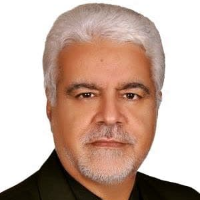Jamā'at al-Ulamā: the Reviver of the Iraqi Shiites' Political Identity
After the First World War when Iraq gained its independence from Ottoman Empire, all subsequent governments which came to power in Iraq, despite their various forms and attitudes, failed to prepare the ground for all sections of society to participate in sociopolitical activities. Meanwhile, notwithstanding the fact that shi'ahs constituted the majority of population and that they made considerable effort to gain and ensure independence, Shiites were less favored than any other group. The revolution of 1958 AD by Abdul-Karim Kassem and implementation of some reforms by him as well as the diffusion of non-religious ideologies, including communism, provoked Shi'ah clerics to react . It seems that this reaction has had a considerable impact on the revival of Shi'ah political identity in Iraq in that period and afterwards. In the meantime, Jamā'at al-Ulamā was one of the first groups playing an invaluable role in this regard. In the present paper, writer has tried to consider and study the role played by this group in the political evolutions of the Shi'ah community in Iraq while investigating the conditions leading to the emergence of Jamā'at al-Ulamā.
-
Study the Causes and Factors of the Complaints of Farmers and Landowners with the Implementation of the Land Reform Law (A Case Study of Kermanshah Province)
Parvin Rostami *, Ruhollah Bahrami, Sajad Dadfar
History of Villages and Rural Settlements in Iran and Islam Journal, -
Verbal violence in the biography of Ḥajjāj ibn Yūsuf Thaqafī(case study: Iraq sermons)
Hossein Alibeigi*, Ruhollah Bahrami, , Shagaig Saleh
Quartely Research Journal of Islamic History,



